Fire Alarm System
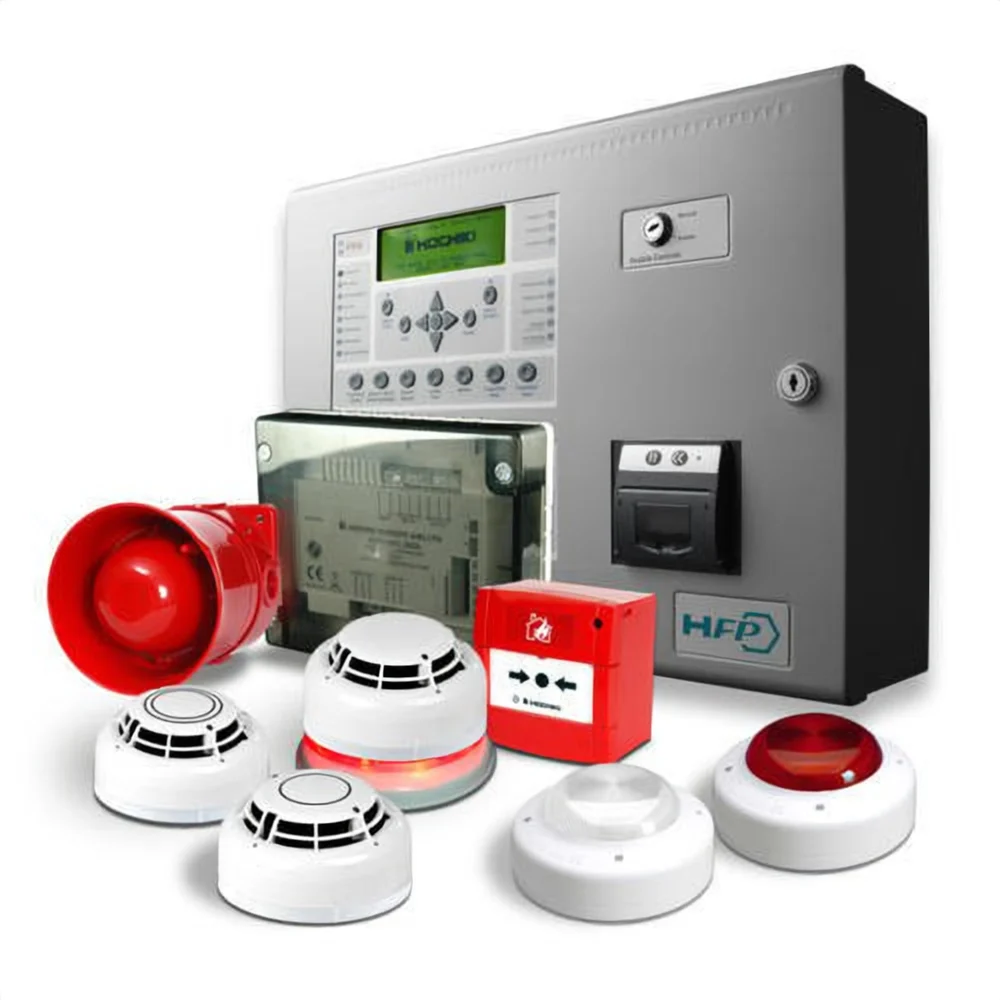
Fire Alarm System
Understanding Fire Alarm Systems: The Ultimate Guide
Introduction to Fire Alarm Systems
What is a Fire Alarm System?
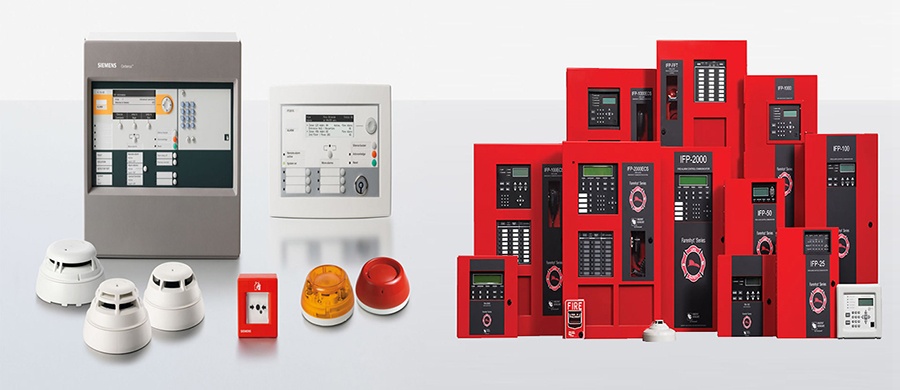
A fire alarm system is a crucial safety mechanism designed to detect the presence of fire, smoke, or heat and alert building occupants through audible and visual alarms. These systems are essential for providing early warning, allowing for timely evacuation and emergency response.
Importance of Fire Alarm Systems
Fire alarm systems play a vital role in safeguarding lives and properties. They offer an early detection mechanism, which is critical in minimizing damage and ensuring the safety of individuals within the premises. Without these systems, the risk of catastrophic loss due to fires increases significantly.
Components of a Fire Alarm System
Fire Detectors

Fire detectors are the heart of any fire alarm system. They sense the presence of smoke, heat, or flames, triggering the alarm system.
Smoke Detectors
Smoke detectors identify the presence of smoke particles in the air, usually through optical or ionization methods. They are highly sensitive and are commonly used in residential and commercial settings.
Heat Detectors
Heat detectors respond to changes in temperature. They are less prone to false alarms compared to smoke detectors and are ideal for environments where smoke detectors might trigger unnecessarily, such as kitchens.
Control Panel
The control panel is the brain of the fire alarm system. It receives signals from the detectors, processes the information, and activates the alarm devices. It also indicates the location of the detected fire and interfaces with emergency response systems.
Alarm Notification Devices
These devices alert building occupants about a fire emergency through sounds and lights.
Sirens and Bells
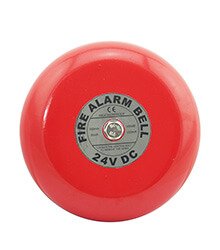
Sirens and bells produce loud sounds to ensure that everyone in the building is aware of the potential danger.
Strobe Lights
Strobe lights provide visual alerts, which are especially important in noisy environments or for individuals with hearing impairments.
Power Supply
The power supply ensures that the fire alarm system remains operational at all times. It typically includes a main power source and a backup battery system to keep the system running during power outages.
Types of Fire Alarm Systems
Conventional Fire Alarm Systems
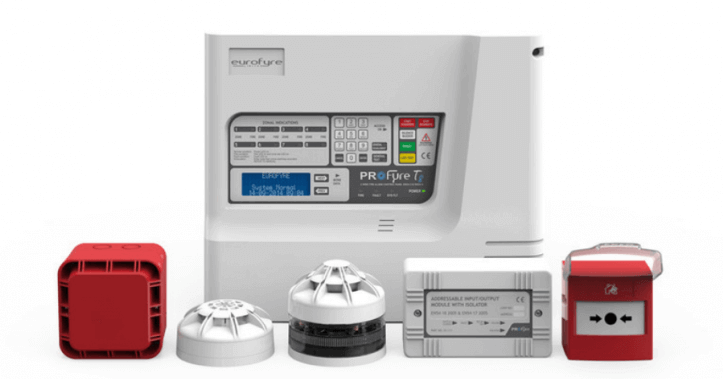
Conventional systems divide the premises into zones. Each zone is connected to a central control panel. When a detector in a zone is triggered, the control panel identifies the zone where the alarm originated.
Addressable Fire Alarm Systems
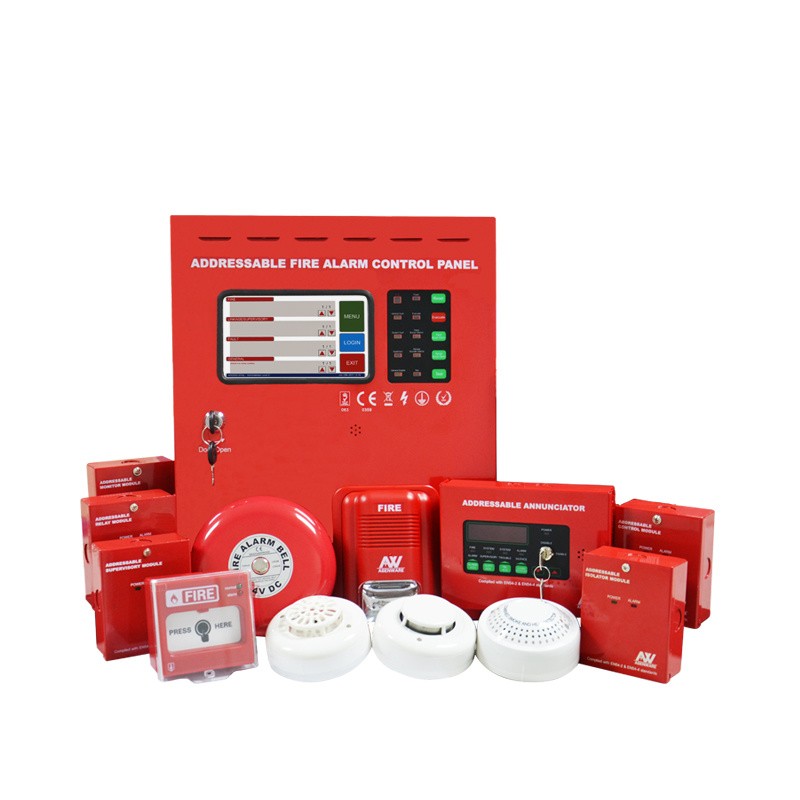
Addressable systems assign a unique address to each detector and device. This allows for precise identification of the location of the alarm, which is particularly useful in larger buildings.
Wireless Fire Alarm Systems
Wireless systems use radio signals to communicate between devices and the control panel. They are easier to install and can be a good solution for buildings where wiring is challenging.
How Fire Alarm Systems Work
Detection
Fire alarm systems begin with detection. Detectors sense smoke, heat, or flames and send a signal to the control panel.
Notification
Once the control panel receives the signal, it activates the alarm notification devices, alerting occupants to evacuate the building.
Response
The system may also interface with emergency response systems, automatically notifying fire departments or initiating fire suppression systems.
Installation of Fire Alarm Systems
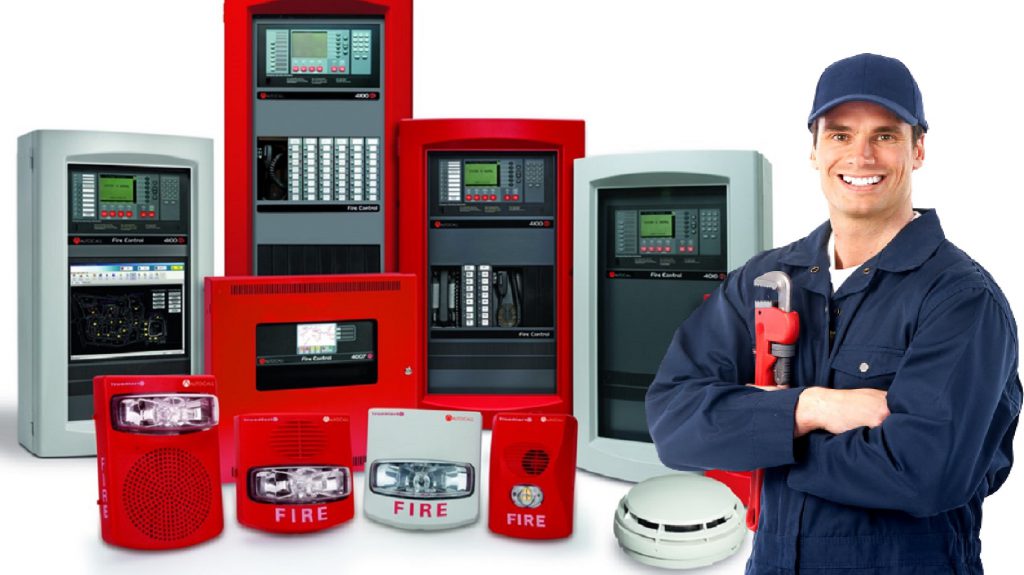
Planning the Installation
Proper planning is essential for effective fire alarm system installation. This involves assessing the building layout, identifying potential fire hazards, and determining the optimal placement of detectors and alarms.
Professional Installation vs. DIY
While DIY installation might save costs, professional installation ensures that the system is set up correctly and complies with all safety regulations. Professionals have the expertise to design and install a system tailored to your specific needs.
Maintenance of Fire Alarm Systems
Regular Testing
Regular testing is crucial to ensure that the fire alarm system functions correctly. This typically involves monthly tests of detectors and control panels.
Common Maintenance Practices
Maintenance practices include cleaning detectors to prevent dust buildup, checking the power supply, and replacing batteries as needed. Regular maintenance helps prevent false alarms and ensures the system’s reliability.
Fire Alarm System Regulations and Standards
National Fire Protection Association (NFPA) Standards
The NFPA provides guidelines for the installation, maintenance, and testing of fire alarm systems. Adhering to these standards ensures that your system meets national safety requirements.
Local Building Codes
Local building codes may have additional requirements for fire alarm systems. It’s important to be aware of and comply with these regulations to avoid fines and ensure safety.
Benefits of Having a Fire Alarm System
Early Detection
Early detection of fires can save lives and reduce property damage. Fire alarm systems provide the critical time needed for occupants to evacuate and for emergency services to respond.
Protection of Property and Lives
By alerting occupants quickly, fire alarm systems help protect lives. They also minimize property damage by enabling faster firefighting responses.
Insurance Benefits
Many insurance companies offer discounts on premiums for properties equipped with fire alarm systems. This is because these systems significantly reduce the risk of severe fire damage.
Challenges in Fire Alarm Systems
False Alarms
False alarms can be a nuisance and can cause complacency. They can be triggered by dust, steam, or minor electrical malfunctions.
System Failures
Regular maintenance is necessary to prevent system failures. If a fire alarm system fails during an actual emergency, the consequences can be dire.
Maintenance Costs
While maintaining a fire alarm system incurs costs, these expenses are necessary to ensure the system’s reliability and effectiveness.
Innovations in Fire Alarm Technology
Smart Fire Alarms
Smart fire alarms integrate with home automation systems and can be monitored and controlled via smartphones. They offer advanced features such as real-time notifications and remote testing.
Integration with Home Automation
Modern fire alarm systems can integrate with home automation for a seamless safety solution. For instance, a smart fire alarm can trigger smart locks to unlock doors or smart lights to illuminate exit paths during an emergency.
Choosing the Right Fire Alarm System
Assessing Your Needs
Consider the size of your property, the number of rooms, and specific fire risks when choosing a fire alarm system.
Budget Considerations
Fire alarm systems vary in cost. While it’s essential to stay within budget, prioritize systems that offer the best protection and reliability.
Professional Consultation
Consulting with a fire safety professional can help you choose the right system for your needs. Professionals can provide insights into the latest technologies and best practices.
Fire Alarm System Brands
Top Brands in the Market
Some top brands include Honeywell, Siemens, and Bosch. Each brand offers a range of products with different features and price points.
Features Comparison
Compare features such as ease of installation, types of detectors, smart home integration, and maintenance requirements to find the best fit for your needs.
Case Studies of Fire Alarm System Success
Real-life Scenarios
Many buildings have successfully avoided major fire damage thanks to early detection by fire alarm systems. For instance, a well-known case involved a school where a fire was detected early, allowing for a safe evacuation and minimal damage.
Lessons Learned
These cases highlight the importance of regular maintenance and having a reliable system in place. They also demonstrate how fire alarms can make a significant difference in emergency situations.
DIY vs. Professional Fire Alarm Systems
Pros and Cons
DIY systems can be more affordable and convenient for small properties, while professional systems are more reliable and better suited for larger or more complex buildings.
Cost Analysis
While DIY systems have lower upfront costs, professional systems may offer better long-term value due to their reliability and lower risk of failure.
Conclusion
Fire alarm systems are indispensable for ensuring safety in both residential and commercial buildings. By understanding the components, types, installation, and maintenance of these systems, you can make informed decisions that protect lives and property. Regular maintenance, adherence to regulations, and choosing the right system for your needs are crucial steps in fire safety.
FAQs
How often should I test my fire alarm system?
You should test your fire alarm system at least once a month to ensure it is functioning correctly. Regular testing helps identify any issues before they become serious problems.
What should I do if my fire alarm goes off accidentally?
If your fire alarm goes off accidentally, first check for any signs of fire. If there is no fire, ventilate the area to clear any smoke or steam that may have triggered the alarm. Reset the alarm according to the manufacturer’s instructions.
Can I install a fire alarm system myself?
While you can install a basic fire alarm system yourself, professional installation is recommended for more complex systems to ensure proper setup and compliance with safety standards.
Are wireless fire alarm systems reliable?
Yes, wireless fire alarm systems are reliable and offer the advantage of easier installation. However, it’s essential to choose a high-quality system and perform regular maintenance.
How do I choose the right fire alarm system for my home?
Consider factors such as the size and layout of your home, specific fire risks, your budget, and whether you want features like smart home integration. Consulting with a fire safety professional can also help you make the best choice.
Universal Fire Protection is one of the well-known fire fighting equipment company in pakistan which provide fire fighting equipment, fire safety equipment, security equipment and repairing and maintenance of fire alarm system, fire extinguishers, hose reels and hose boxes, sirens for alarming fixed automatic extinguishing system and refilling of all types of fire extinguisher.
